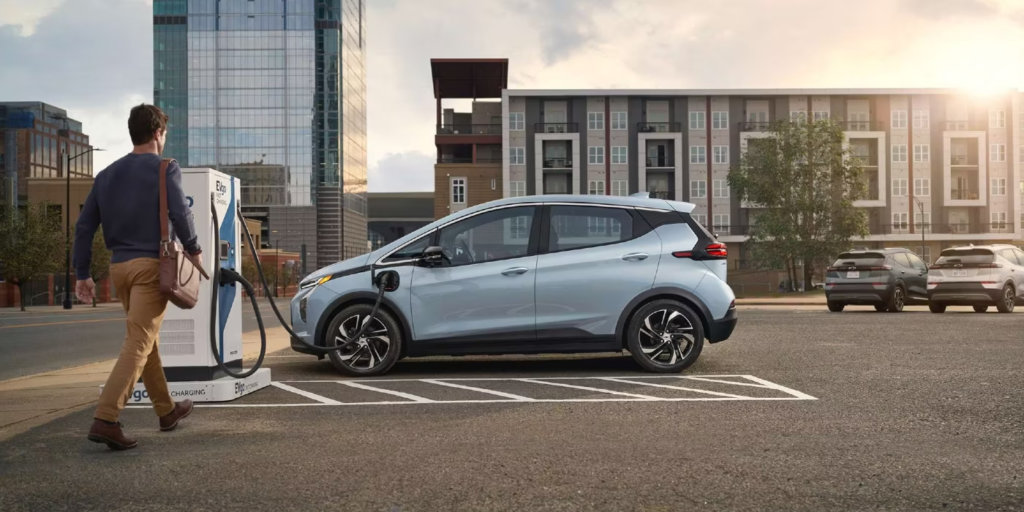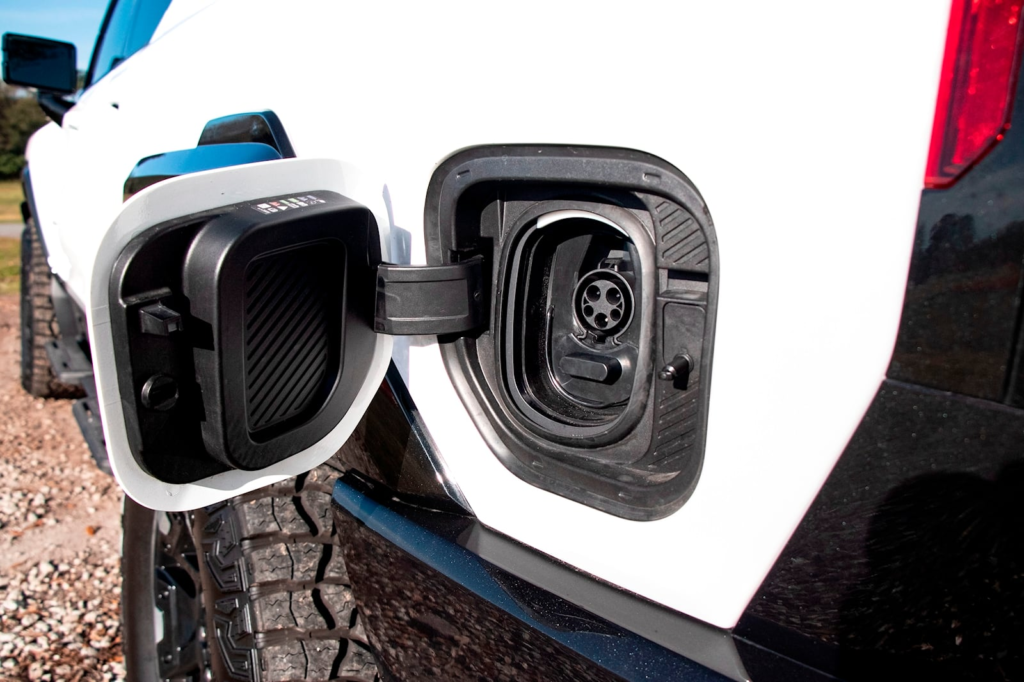In an era where sustainability and eco-consciousness are at the forefront of global concerns, electric vehicles (EVs) have emerged as a game-changer in the automotive industry. With their promise of reducing carbon emissions and dependence on fossil fuels, EVs have gained significant traction among consumers worldwide. However, as more individuals make the shift towards electric mobility, it becomes imperative to delve deeper into the crucial aspect of EV ownership: the costs associated with charging these vehicles. Join us on a journey to unravel the intricacies of electric vehicle charging and gain valuable insights into what it means for your wallet and the environment. Go article “Understanding the Costs of Electric Vehicle Charging” with Insurecar.Info now!!!
Exploring the Expenses: Charging at Home versus on the Road

Determining the expenses associated with charging an electric vehicle (EV), both at home and on the road, can be a complex task. For the majority of new car buyers, around four out of five, who have the convenience of home charging, the cost per mile is consistently lower compared to traditional gasoline-powered vehicles. However, for those residing in apartments, navigating various rates from charging station operators can be a challenge. Additionally, for DC fast-charging, often utilized during extended road trips, prices may fluctuate, yet generally align with gasoline costs.
Given these variables, the total cost of a full charge can vary significantly. For instance, for the best-selling EV, the Tesla Model Y, the cost ranges from a mere $9 when charging at home, to as much as $40 at a pricier Level 3 fast-charging station.
READ MORE:
- Top 5 Car Insurance in Texas: Protecting Your Drive
- Best Car Insurance in Georgia: A Comprehensive Guide
The Complexity of Calculating Real Costs
To begin, it’s crucial to understand your home electricity rate. Few people can readily state their cost per kilowatt-hour without some research. Currently, the average cost in the U.S. stands at approximately 16 cents per kilowatt-hour, a unit that can propel most EVs for two to three miles. EV drivers often enjoy reduced rates during off-peak hours, typically from 11 p.m. to 6 a.m.
When it comes to DC fast-charging for road trips, pricing can be intricate, varying among networks and potentially offering lower rates during nighttime hours. Some networks may also require a session fee for each charging connection, while others offer membership plans with a monthly fee and reduced per-kWh rates.
Analyzing Cost per 100 Miles
To simplify calculations and facilitate direct comparisons with gasoline vehicles, we’ve assessed the cost of driving 100 miles in various EV models. For home charging, we’ve used the EPA-rated range, which considers a mix of local and highway driving. In the case of DC fast-charging, we’ve focused exclusively on highway miles, employing our own range tests.
Overall, home charging consistently proves more cost-effective for covering 100 miles compared to gasoline, often costing just a quarter of the price. Conversely, for road trips using DC fast-charging, expenses tend to surpass those of gasoline. However, in regions with high gasoline prices, particularly for inefficient vehicles, highway charging may still be competitive.
Case Study Part 1: 2023 Chevrolet Bolt EV

The Costs
In Louisiana, the cost of charging a Bolt EV for 100 miles at home is a mere $2.81, while 100 miles of EVgo fast-charging amounts to $11.82. By comparison, covering 100 miles in a 33-mpg small SUV costs approximately $10.
Analyzing the Bolt’s Efficiency
At home, 100 miles constitutes 38.6 percent of the EPA-rated range of 259 miles, equivalent to 25.5 kWh from its 63-kWh battery pack. In Louisiana, this translates to $2.81 in electricity costs. By contrast, a comparable gasoline vehicle would require three gallons of gasoline at $3.36 per gallon, totaling about $10.
On the Road with the Bolt
During our 75-mph real-world highway range test, the Bolt achieved 220 miles. To cover 100 miles, it necessitated 30.1 kWh. Partnering with EVgo, the Bolt’s fast-charging network, entails a $1 session fee plus $0.36/kWh on its Pay as You Go plan, resulting in a total cost of $11.82—almost 20 percent more expensive than gasoline.
Stay tuned for Part 2, where we delve into the costs of charging the 2023 Tesla Model Y Long Range and the 2024 GMC Hummer EV Pickup.
Part 2: Examining Charging Costs for the 2023 Tesla Model Y Long Range

The Costs
Moving on to the 2023 Tesla Model Y Long Range, charging 100 miles at home in the United States comes to $3.82, while 100 miles of Supercharging fast-charging can range from $10 to $19. Comparatively, covering 100 miles in a 28-mpg compact SUV costs about $13.70.
Assessing the Model Y’s Efficiency
At home, charging 100 miles accounts for 30.3 percent of the 75-kWh battery, equating to 23.9 kWh. At the U.S. average electricity rate of $0.16 per kilowatt-hour, this results in a cost of $3.82. In contrast, a 28-mpg compact crossover traveling 100 miles at the average U.S. gasoline price of $3.80 requires 3.6 gallons, costing $13.70. Once again, the EV demonstrates its cost advantage, nearly four times cheaper when charged at home.
On the Road with the Model Y
Highway travel introduces a different perspective. The Tesla Model Y Long Range achieved 220 miles during our highway test. To cover 100 highway miles, it consumes 35.8 kWh. The Tesla Supercharger network boasts varying charging costs, ranging from $0.25 to $0.50 per kilowatt-hour, contingent on power capacity, time of day (with nighttime rates being cheaper), and location (California often being pricier).
In the best-case Supercharging scenario, charging the Model Y for 100 highway miles costs $9.95, while in the worst case, it doubles to $19.90. These rates are respectively lower and higher than gasoline prices, illustrating that the choice between electricity and gasoline costs depends on several variables.
Part 3: Analyzing Charging Expenses for the 2024 GMC Hummer EV Pickup

The Costs
Shifting our focus to the 2024 GMC Hummer EV Pickup in Hawaii, the cost of charging 100 miles at home stands at $27.48, while 100 miles of highway fast charging amounts to $37.11 or more. In comparison, covering 100 miles in a Hummer gasoline vehicle with an estimated 10 mpg efficiency would cost approximately $47.90.
Exploring the Hummer’s Unique Characteristics
The electric Hummer is an extraordinary vehicle, known for its off-road capabilities, four-wheel steering, and impressive acceleration, reaching 60 mph in just 3.3 seconds. Its substantial battery pack is essential not only for its acceleration but also for overcoming the aerodynamic challenges posed by its size.
In our most pessimistic scenario, we examine a large, inefficient EV recharged in a state with the highest electricity rates in the nation—Hawaii, where the rate is $0.42/kWh. This state relies on fossil fuels for two-thirds of its electricity, contributing to its high costs. The Hummer EV boasts a massive usable battery capacity of 205.0 kWh.
Home Charging the Hummer
Covering 100 miles in the Hummer requires 30.4 percent of its battery capacity, equaling 65.4 kWh. In Hawaii, this results in a cost of $27.48. In contrast, assuming a generous 10 mpg for a gasoline Hummer in Hawaii’s expensive fuel market, the cost would be approximately $47.90—nearly twice the cost of home charging.
On the Road with the Hummer
During our 75-mph highway test, the Hummer EV achieved an impressive 290-mile range, surpassing expectations. To cover 100 highway miles, it requires approximately 74.2 kWh. Hawaii offers DC fast-charging stations with varying rates, typically ranging from $0.49 to $0.66 per kWh, dependent on factors like time of day and location. Assuming an average rate of $0.50 per kWh, 100 highway miles would cost $37.11. Surprisingly, this means it’s possible to spend more than $100 to fill up a Hummer EV.
In contrast, a gasoline Hummer with the same 10-mpg efficiency traveling 100 highway miles would cost approximately $47.90. Thus, in this unique scenario, even expensive DC fast-charging proves to be slightly more economical than gasoline for a massive, inefficient EV in a state with high fuel prices.
RELATED POST:
- The Potential Impact of a UAW Strike on Car Availability
- Best Car Insurance in Ohio: A Comprehensive Guide
Conclusion: Navigating the Costs of Electric Vehicle Charging

In conclusion, understanding the costs associated with charging electric vehicles involves various factors, including location, electricity rates, and vehicle efficiency. Home charging consistently emerges as the more economical option for covering 100 miles, often costing a fraction of the price of gasoline. However, when embarking on highway journeys and utilizing DC fast-charging, costs can become competitive with gasoline, especially for less efficient vehicles in areas with high fuel prices.
The GMC Hummer EV remains an outlier among EVs, with its massive battery pack and unique characteristics, while Hawaii presents an exceptional case with its high electricity and gasoline prices. Ultimately, the decision to go electric or stick with gasoline depends on individual circumstances, driving habits, and the efficiency of the chosen vehicle.
Source: https://www.caranddriver.com/news/a45036169/electric-vehicle-ev-cost-to-charge/
